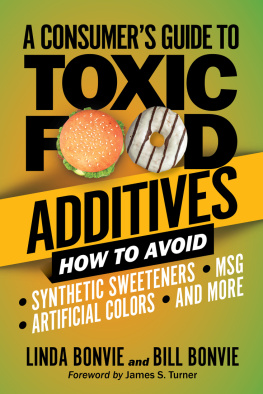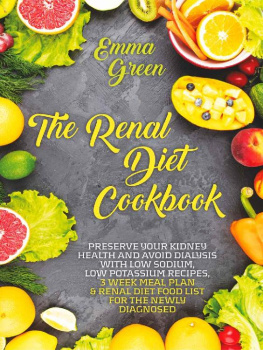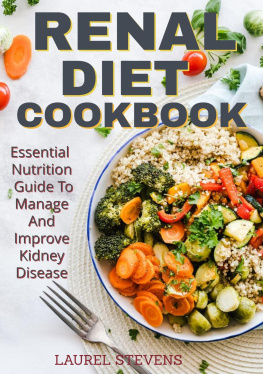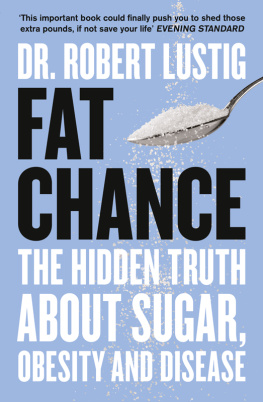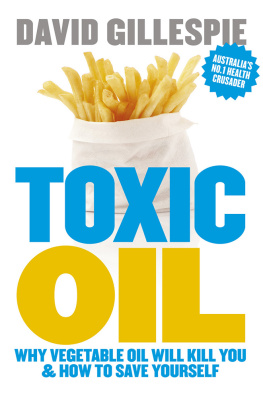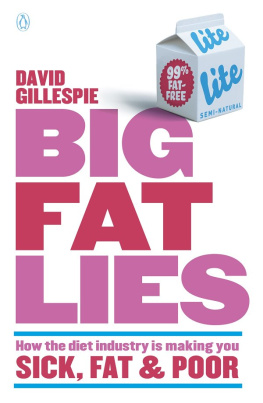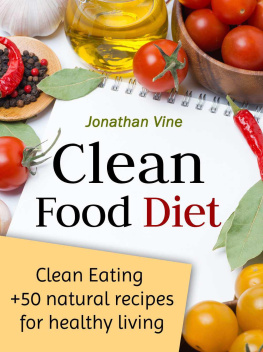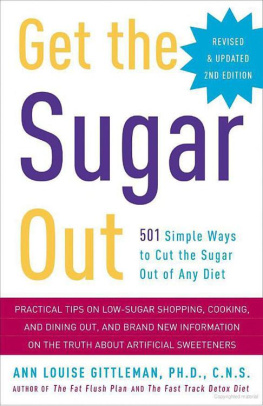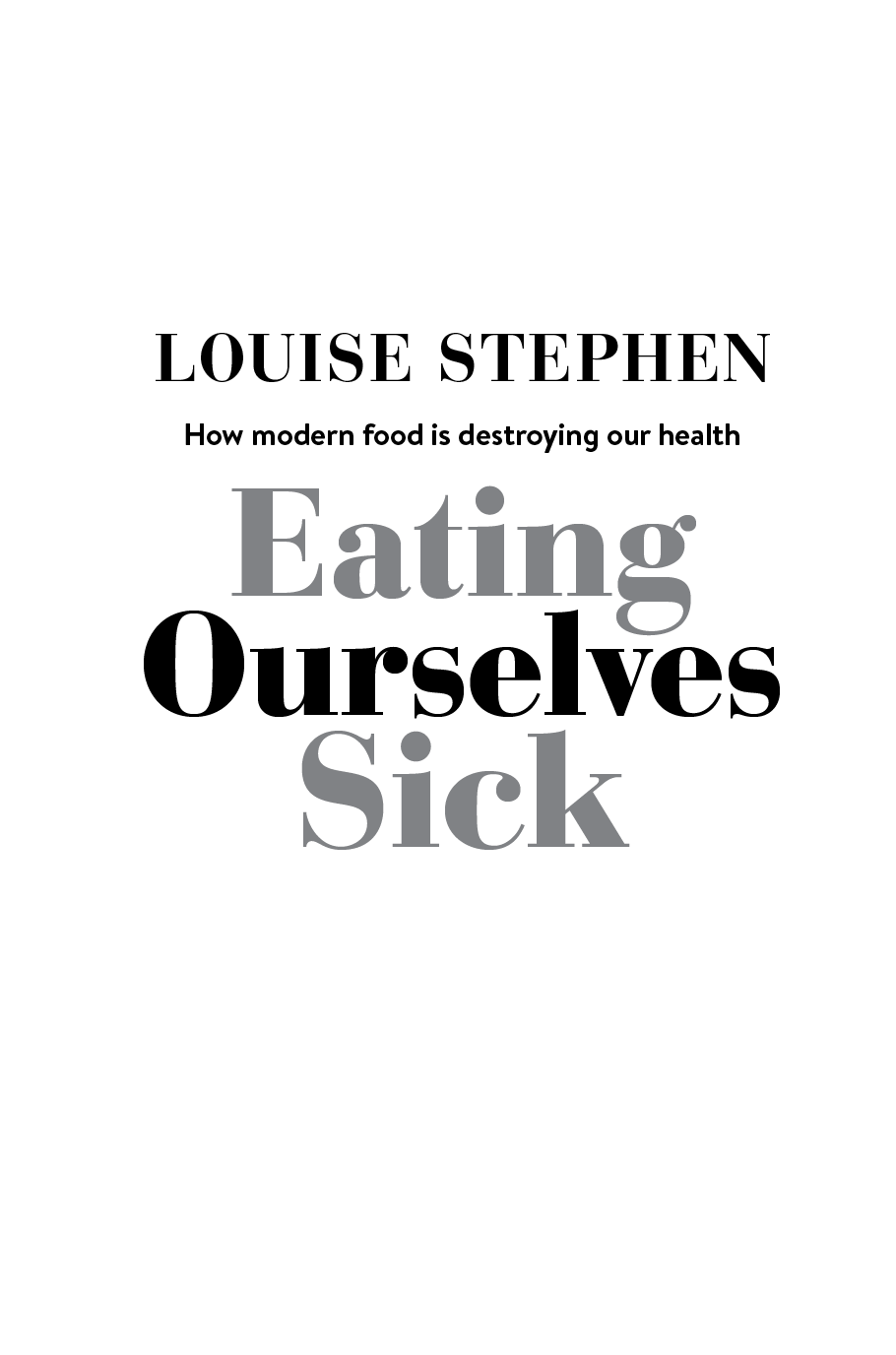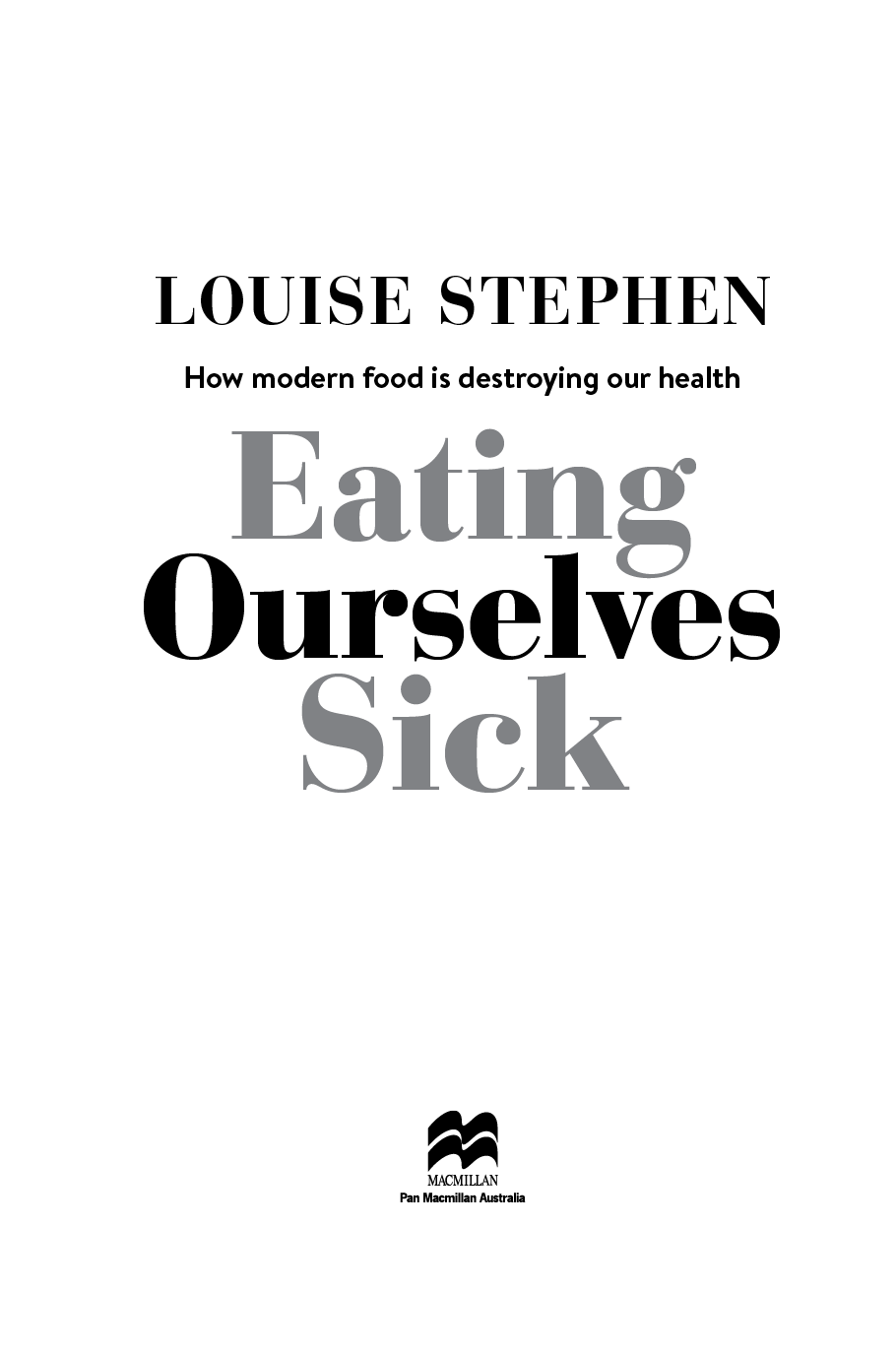About Eating Ourselves Sick
Our diet has changed radically in the space of 100 years. We have swapped home-cooked food made with whole ingredients for processed food made from sugar, seed oils and refined wheat. Modern-day food is cheap, convenient and accessible, but also hugely destructive to our health.
Former business consultant Louise Stephen developed an autoimmune disease in her early thirties, which led to renal failure and a kidney transplant. As a middle-class professional from a wealthy Western country, she was perplexed as to how she had become so ill. She started to investigate, using her business and research skills to find out what she could about diet and how it relates to health.
What she uncovered will change the way you think about processed food frozen dinners, breakfast cereals, packaged snacks, dips, flavoured drinks, bottled sauces and the industry that is profiting from the commodification and toxication of our food supply.
Stephen shows us how Big Food is picking up where Big Tobacco left off, employing skilful marketing to nudge us towards increasingly processed food, while hoping well fail to notice the commensurate rise in obesity and decline in health. Stephen reveals how governments and peak health bodies are often powerless to intervene and, even worse, are sometimes complicit in convincing us to ditch our wholefood ingredients for factory-made products.
This is not a diet book.
Meticulously researched and compellingly argued, Eating Ourselves Sick shines a light on the powerful forces that stand between us and a healthy diet.
Contents
To the small hand that stopped me
from crossing the bridge
I spent several years studying the primitive people in various parts of the world.
And Ive come as a missionary from them, to the people of modern civilisation.
And I beg of you to learn of their accumulated wisdom.
And if you do, you can have strong, healthy bodies without so much disease as we suffer from these days.
Weston A. Price while visiting Australia in 1936.
Foreword
The human species evolved physiologically to be hunter-gatherers, and since we performed this role around 10,000 years ago there has only been a marginal change in our physiology. The past 5060 years have seen a marked increase in the intake of processed, packaged foods and drinks. We have been bombarded with the low-fat diet message and an explosion of pharmaceutical drugs for all manner of diseases. Despite all of this, society is getting fatter and sicker, and although our average life expectancy has peaked at around 80 there are some concerns that this will start falling because of the marked increase in diabesity the combination of diabetes and obesity. This is now close to epidemic proportions around the world, despite the bold predictions in some quarters that, in the relative future, we will be living until we are 150.
The real problem for the modern human is that we are living against our physiology, which is basically that of a hunter-gatherer. The hunter-gatherer had the acute feast of the kill, interspersed with plenty of times when food or fluid was not available, and required constant movement to obtain that food in a natural, harsh environment. The only stress experienced by the hunter-gatherer was the adrenalin rush of the kill. In our modern world, we have a constant feast with much less movement, where we are also exposed to a whole manner of synthetic chemicals and varying sources of electromagnetic radiation, not to mention complex chronic stressors. We are also living double the use-by date of the hunter-gatherer, which was only around 3040 years.
Three major groups have made billions of dollars from chronic disease or what has significantly contributed to it in the first place: the medical industry, multinational food companies and the pharmaceutical industry. But its not just the fault of all these groups. The general public continues to practise many forms of addictive or habitual behaviour, including overeating, using legal and illegal drugs, doing sedentary jobs and following sedentary lifestyles. In addition, most people are often overwhelmed by the increasing stresses of the modern world. David Katz, the director of the Yale University Prevention Research Center once stated human beings living in modern society are analogous to polar bears [taken] out of the Arctic and [placed] in the Sahara Desert. He then stated, instead of the polar bears overheating under the Saharan sun, we are seeing human beings overeating under the Golden Arches.
There are many books on the market telling us what is wrong with our health and giving us a variety of solutions, but Louise Stephen explains why we are where we are: historically, politically and scientifically. In Eating Ourselves Sick , she clearly explains the vested interests of money and power operating in many spheres of health, and how these vested interests are often part of the reason we have the extraordinary burden of chronic disease we are now seeing in our modern society. Louise asks you to challenge the collective wisdom and to question much of the accepted dogma.
Dr Ross Walker, MB BS (Hons), FRACP, FCSANZ
Consultant cardiologist
Sydney, December 2016
Introduction
In November 2002 I was 33 years old and working as a corporate strategy consultant specialising in the retail and consumer markets sector. Ever since Id sat through a sweltering summer school undergraduate strategic management class, Id known working in this field would be right up my alley and I couldnt wait to trade the uni threads for a severe haircut and a pinstripe suit, and beat a path to the big end of town where the best consulting firms had their offices. The book that had officially changed my life was The Popcorn Report by trend forecaster/futurist Faith Popcorn, so my grand career plan involved cutting my teeth in the consulting firms before hopefully moving into the field of trend forecasting. But, as I was to find out, the best laid plans dont always materialise. Life had other things in store. Ironically, Popcorn is famous for her core philosophy: If you knew everything about tomorrow, what would you do differently today? For me the answer was A lot.
Back in 2002, I loved my job in consulting although the hours, travel and high productivity under intense deadlines were likely affecting me in ways that I couldnt imagine. I was loosely aware of the idea we should eat according to the Food Pyramid plenty of bread, pasta, rice with a few fruits and vegetables, not forgetting to eat margarine instead of butter to limit your odds of a heart attack. I rarely bothered to exercise as I was often moving around office buildings, taking stairs whenever possible or running through airports. Surrounded by the sharply dressed, image-conscious men and women that inhabit the world of consulting, I ruthlessly stayed on top of my weight. If I couldnt find the healthy wholegrain bread and pastas, particularly when travelling or at client sites, I would likely find something sugary or caffeine loaded, or just not eat at all.
In terms of my health, I suffered from persistent brain fog and fatigue, which I put down to a lack of either sugar, caffeine or sleep. Most of the time I had a chronic hacking type of cough that X-rays and tests couldnt explain. I would recover from one chest infection, only to go down with another not long after. I would also get strange allergic-type rashes and my healthy wholegrain diet would always leave me bloated and sleepy. In spite of these problems I always considered myself to be a healthy person. I was a very healthy child growing up and had never been to hospital in my life.


